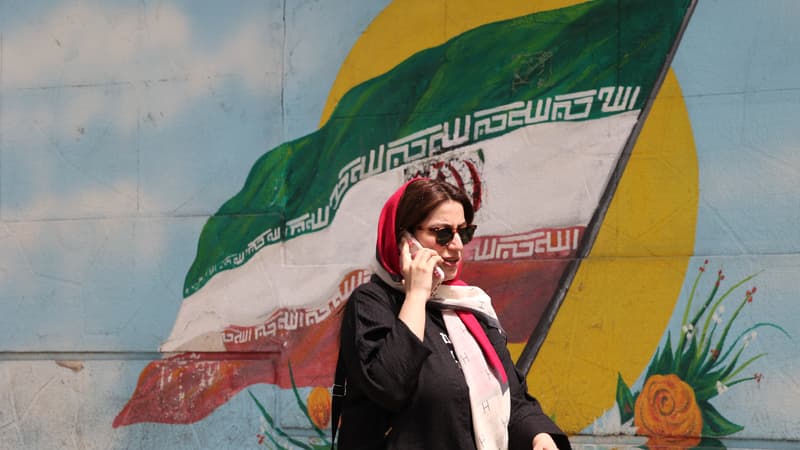The Iranians again under pressure. As many women continue to take to the streets unveiled to show their opposition to Ebrahim Raisi’s conservative-Islamic regime, Iranian police announced Sunday that they have re-established patrols to punish women who break the law.
“Starting today, the police will warn and punish, through car and foot patrols, people who unfortunately disobey orders and continue to disobey the dress code,” warned the doorman.- Police spokesman Saïd Montazeralmahdi, quoted by the tasnim agency. .
This announcement comes ten months after the death, on September 16, 2022, of the young Mahsa Amini, arrested by the morality police who accused her of having violated the dress code of the Islamic Republic, imposing in particular on women wearing the veil. in audience.
The return of the moral police
In recent days, photos and videos have been posted on social media showing policewomen in chadors (a traditional Iranian garment) admonishing and arresting non-veiled women.
The reform-minded Shargh daily reported on Sunday that four women had recently been sentenced to “take psychology courses”, “clean hospitals” and were “banned from driving for two years” after being found guilty.
Mahsa Amini’s death had sparked a large protest movement with demonstrations in several cities in October and November before dying down. Several hundred people, including members of the security forces, were killed and thousands arrested. Seven men were executed for their part in this movement.
Questioned by protesters, the morale police had largely disappeared from the streets in recent months. And more and more women were going out bareheaded, especially in Tehran and the big cities.
A bill “Support the culture of hijab and chastity”
Since the beginning of the year, the authorities have taken a number of initiatives, ranging from closing businesses, particularly restaurants, to installing cameras on the streets to track those who defy the ban.
At the same time, the judiciary and the government proposed a bill called “Supporting Hijab and Chastity Culture” in May in order to “protect society” and “strengthen family life.” This text, which has sparked a lively debate, suggests reinforcing sanctions, in particular economic ones, against “anyone who removes their veil in public places or on the Internet.”
The morality police had started their patrols in 2006 after being created by the Supreme Council of the Cultural Revolution under the ultra-conservative president Mahmoud Ahmadinejad (2005-2013), to “spread the culture of decency and hijab”.
Two months before the start of the protest, the ultra-conservative president Ebrahim Raïsi had called in July 2022 for the mobilization of “all institutions to strengthen the law on the headscarf”, declaring that “the enemies of Iran and Islam wanted to undermine the cultural and religious values of society”.
Source: BFM TV


